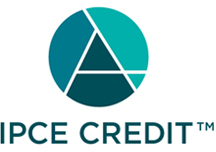Using Goal Attainment Scaling
Course
Self Paced
Expires: August 14, 2025
In this training, you will learn to how to use goal attainment scaling to identify, track and measure SMART goals.
About this On Demand Training
Using Goal Attainment Scaling to Document and Track Health Outcome Goals
Goal attainment scaling is a tool designed to help create goals that are both relevant to the individual and measurable as quality metric. It’s a technique that has been around since the 60’s and has been used heavily in mental health, rehabilitation, disease management and geriatrics. In this training, you will learn to how to use goal attainment scaling to identify, track and measure SMART goals.
What You Will Learn
- Identify a SMART goal
- Translate an individual’s SMART goal into a standardized scale (goal attainment scaling).
- Use goal attainment scaling to document, track and assess goal progress overtime in a standardized way.
- Identify best practices for implementing the approach with diverse populations.
Who Should Attend
- Health care professional
- Healthcare decision maker
- Consultant
- Health plans
- Health systems
- Wellness organization leverages in federal, state, employer
Continuing Education

In support of improving patient care, the National Committee for Quality Assurance is jointly accredited by the Accreditation Council for Continuing Medical Education (ACCME), the American Nurses Credentialing Center (ANCC) the Association of Social Work Boards (ASWB) to provide Interprofessional Continuing Education for the healthcare team.
This activity was planned by and for the healthcare team, and learners will receive 1.0 Interprofessional Continuing Education (IPCE) credit for learning and change.
This educational activity is approved for: 1.0 AMA PRA Category 1 CreditTM, , 1.0 nursing contact hours and 1 ASWB contact hours.*
This on-demand training grants 1.0 other Continuing Education Unit (CEU) points for PCMH Certified Content Experts.
* Please note – You must attend the entire program to be eligible for total number of contact hours.
DISCLOSURE OF RELEVANT FINANCIAL RELATIONSHIPS
The National Committee for Quality Assurance (NCQA) endorses the Standards of the Accreditation Council for Continuing Medical Education which specify that sponsors of continuing medical education activities and presenters at and planners for these activities disclose any relevant financial relationships either party might have with commercial companies whose products or services are discussed in educational presentations.
For sponsors, relevant financial relationships include large research grants, institutional agreements for joint initiatives, substantial gifts, or other relationships that benefit the institution. For presenters or planning committee members, relevant financial relationships include the receipt of research grants from a commercial company, consultancies, honoraria, travel, or other benefits, or having a self-managed equity interest in a company; or having an immediate family member or partner with such a relationship.
Disclosure of a relationship is not intended to suggest or condone bias in any presentation but is made to provide participants with information that might be of potential importance to their evaluation of a presentation.
Relevant financial relationships exist with the following companies/organizations:
Faculty:
Daniela Lawton, MPH
Caroline Blaum, MD, MS
Adrianna Nava, PhD, MPH, MSN, RN
Additional Planning Committee Members:
Cathy Beckner, MS: None
Lee Jennings, MD, MSHS: None
Nancy McGee, MS, MBA: None
This program was developed in part by NCQA staff.
This program was supported by Takeda..

Here is the course outline:
1. Resources |
2. Recording |
3. Evaluation |
4. Attestation |
Completion
The following certificates are awarded when the course is completed:
 |
CCE Other Certificate |
 |
Nursing Certificate |
 |
Physician Certificate |
 |
Certificate of Attendance |
 |
Social Worker Certificate |
 |
Certificate of Attendance |




.png?lmsauth=c974412c78f2cccd0e41bed9be584bd855298ed6)